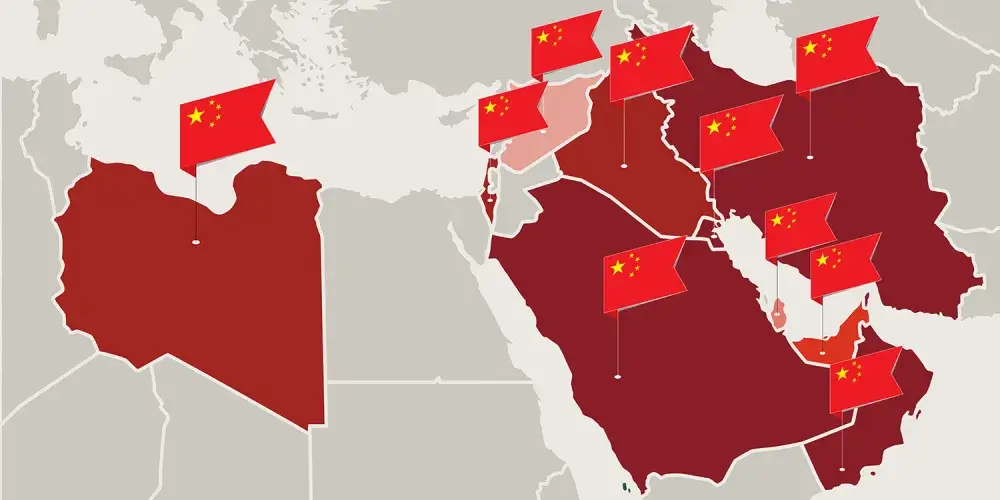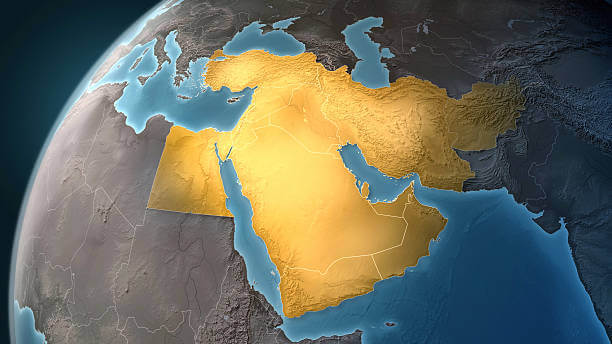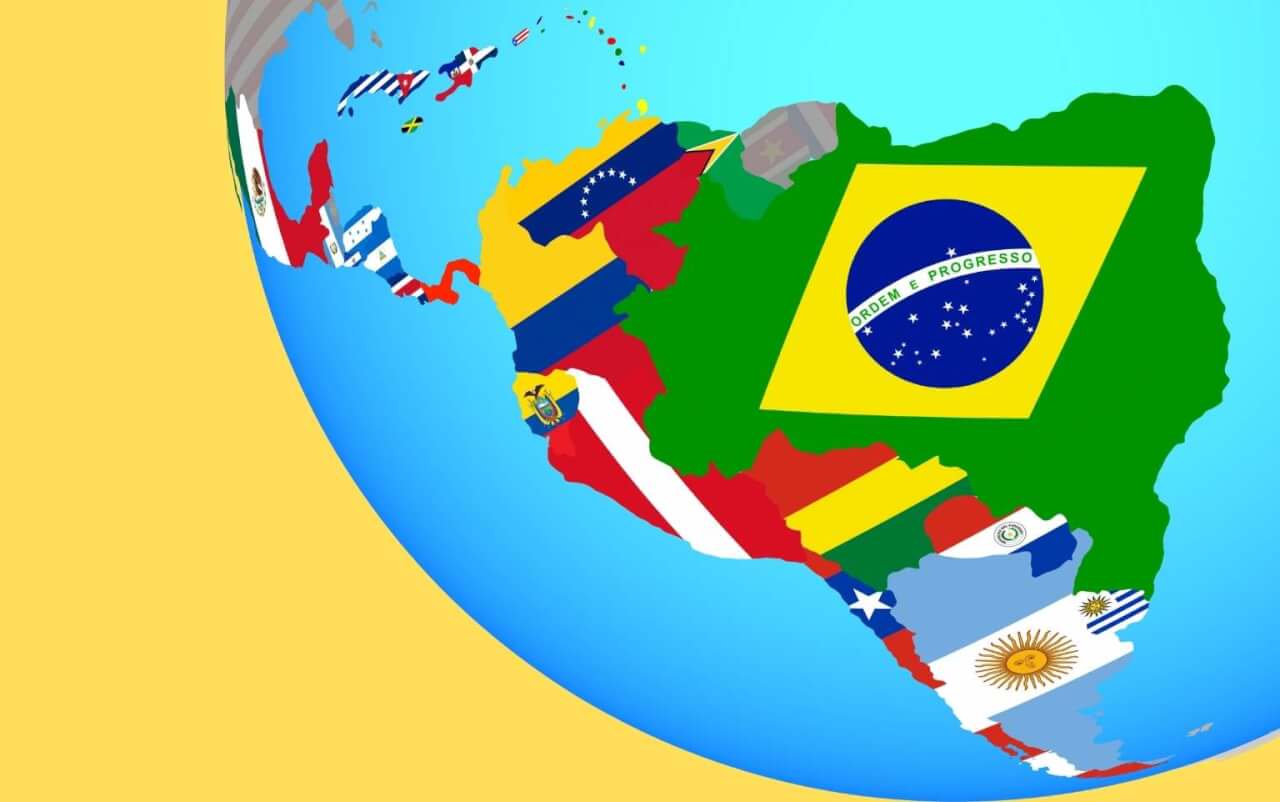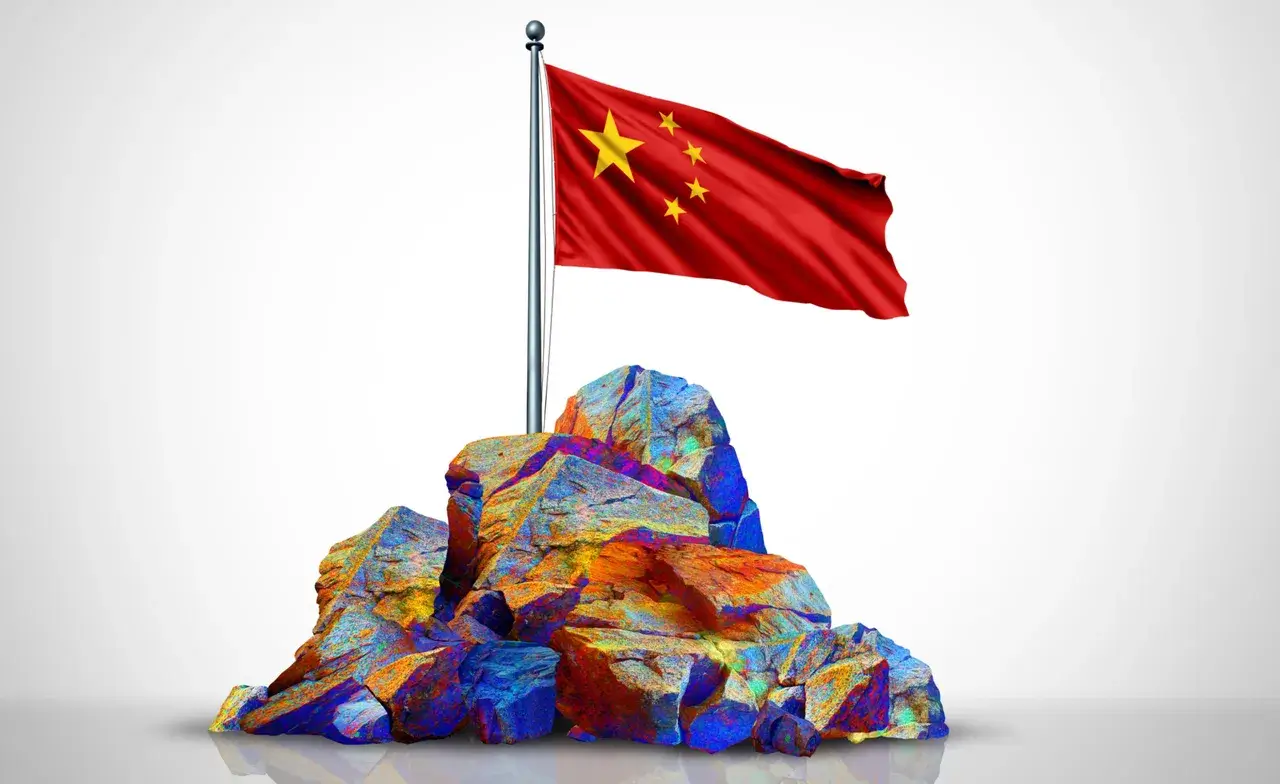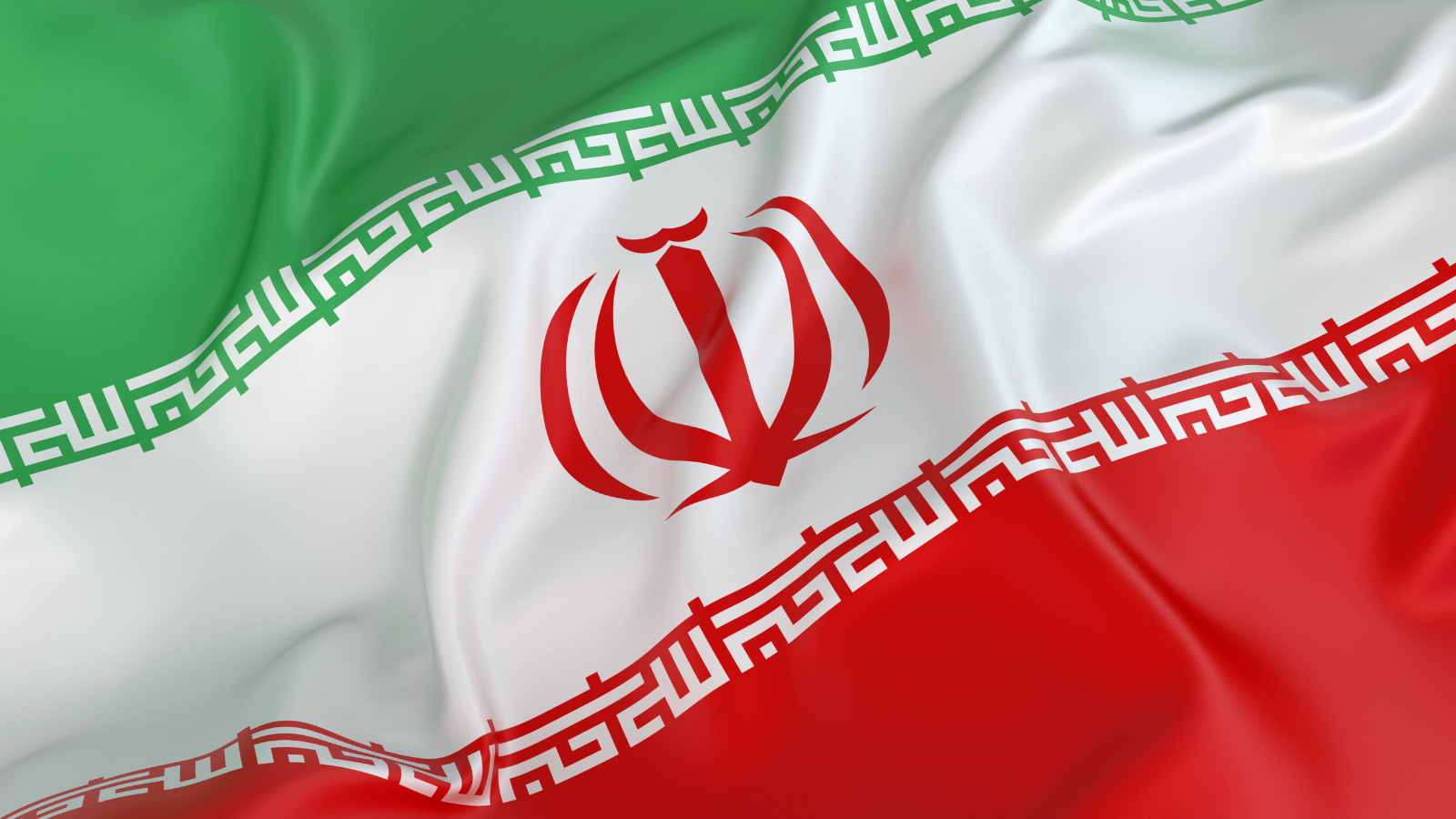Abstract
The significance of the Middle East stems from it is an area of competition among the great powers. Currently, that struggle is highly affected by the multipolarity order of the current system. In this context, China, as the main rival of the West, also tries to reach and establish a presence there. However in order to do that, it seeks a recognition and acceptance by the Middle Eastern states. In status-seeking literature, states are assumed to be actors who tryto find positive perception by the others to attain moral legitimacy. China similarly pursues such legitimacy in Middle East in order to have strong voice in the world politics. This article therefore aims to critically analyze the action of China in Middle East under the filter of the status-seeking literature.
Introduction
China’s rise in world politics more than about change of balance of power, it is about rise of a new state model who seeks recognition by the western world as the peace-builder and a new center in the international relations. Especially in the past two decades, China has been emerging as the new power that, in their perception, can “fix” the problems of the global order. Indeed, one of the areas that the current rules based international order is the Middle East where endless, ethnic and religious and inter-state conflicts has never ceased to exist. China here takes a cautious stance of neutrality to not to directly challenge the United States (US) authority in the region (Fulton, 2019). But, at the same time, building partnerships with the Middle Eastern states through multilateral initiatives is at the center figure of the active Chinese foreign policy. So, this article will deal with the question of how China’s struggle for great power is reflected in its quest for recognition as a peace-builder and morally responsible actor in the Middle Eastern politics. Because, for China being recognized by various developing states is vital to its way to become a great power, and getting a foothold in Middle East is the one important policy goal for it.
This issue will be examined not under the filter of one or few international relations theories, but with a broader concept called the status-seeking. So, at first the main arguments of the status-seeking will be presented, then China’s current advantage vis-à-vis the West and the Middle East, and then some of the foreign policy actions of China will be critically analyzed.
Status-Seeking Literature
First of all, status refers a state’s “ ‘standing or rank in a status community’, which in turn, is related to collective beliefs about a given state’s ranking on valued attributes” (Wohlforth, de Carvalho, Leira Neunmann, 2017, 527). That is to say, status is an actor’s comparison to itself towards the others that makes the status a social concept among states just like the people’s interaction among themselves, so status first and foremost is a social term.
Secondly, since the status is interaction of states just like the ordinary individuals, it also consists of community among peers and non-peers. Therefore, status in international relations is the “circle of recognition” Wohlforth, de Carvalho, Leira Neunmann, 2017). By this logic, if a state begins not to contend with its available status, a clash occurs against the accepted norms or beliefs of the other state groups or international community in general.
Status is also a group’s standing on some traits valued by society which shapes their identities (Larson and Shevchenko, 2010). When identities are shaped, a state’s positioning of itself towards other actors emerges. Usually, identities are classified in a hierarchical order, such as identity of small states, regional powers and great powers. And normally every type of state expects positive identity. For instance, states compare their standing, and achievements and qualities with a reference group (Larson and Shevchenko, 2010). In international relations:
The propensity toward upward comparison is found in the choice of reference groups in international relations, where the Chinese compare their achievements to those of Japan, the United States and Russia; Indians look at China; and Russians judge their accomplishments relative to those of the United States (Larson and Shevchenko, 2010, p. 68).
Such comparison among states is made for to understand how to become a recognized and respected actor. In mainstream international relations theories such as realism, status hierarchy is based on military power, particularly in the form of a show of force as deterrence against the enemies. Against this simple paradigm, English School recognized that status as a great power with certain rights and privileges requires approval from other great powers. In Buzan’s terms “international society is somewhat wider, possibly embracing shared norms about such things as limitations on the use of force, and acceptable “standards of civilization” with regard to the relationship between states and citizens” (Buzan, 2001, p. 478).
The history offers a wide range of acceptance and competition. For instance, Wilhelmine Germany competed with Britain in the size of its battleship fleet, aiming to acquire colonies and spheres of influence to take its “place in the sun”. Similarly the Soviet Union invested enormous resources in the nuclear arms race against the US to achieve recognition as a political military superpower. Or in the case of West Germany and Japan in the postwar period, they sought admission to the “civilized” states by renouncing their militarism, embracing liberal democracy and pursuing their memberships in European integration, the International Monetary Fund (IMF), the General Agreement on Tariffs and Trade (GATT). Status-seeking actions therefore can be defined as symbolic and aiming to influence perceptions of others (Larson and Shevchenko, 2010).
In the arguments of the ontological security, the attention takes a different form. Because many international relations theories particularly the mainstream ones focuses on the material strength and physical security of states. However, ontological security refers to “security as being” instead of “security of survival” (Giddens, 1991). Instead of preserving the physical security, this refers preserving the existence of self, in this case the identity (Adısönmez and Rumelili, 2020). So, security conception and seeking a higher status are different than the traditional understanding. Thus,“ontological security pulls our attention elsewhere, to subjectivity more than physicality, highlighting that all political subjects face the need to maintain a sense of biographical continuity” (Kinwall and Mitzen, 2016, p. 52). The threat perception in this case is not solely shaped by the external enemies, but rather by the internal anxiety of the state, just like human beings. This is related to concern of states on continuation of a state’s self-identity, and operates in two ways:
First, there is always a risk of being attacked even it is minimal, and under even positive secure conditions, the actors have to take the necessary security measures in order to achieve their long-term goal, such as being recognized as a great power.
Secondly, the conflicts and disputes are organized around the perceived enemy identities, which a state sought to build its own identity based on the enemy preference even there is no direct threat towards an actor’s own physical security (Adısönmez, and Rumelili, 2020).
When the arguments of the ontological security are applied to status-seeking, states are either accept its status by accepting one’s authority or go against it. The scholar Wolf divides prestige of state into trait-status, glory, and honor, and classifies role status of state into natural authority, negotiated authority and imposed deference (Wolf, 2019).
The trait-status basically means attributes or possessions are known to be widely esteemed by a given society. And the actors whose behavior or deeds are admired or ethically recognized considered as glory or honor (Wolf, 2019). But glory and honor trait-status are based on esteemed behavior rather than attributes such as wealth or coercive capability.
Honor is crucial for image of integrity and exclusively is not based on current features; rather its references are the past events. Honor identifies itself as the heroic actions of the past events in a nation-state’s history. A state can therefore be dishonored by past or present wrongs and it would be hard to repair the image for the state through repentance or reparation which often takes decades.
Glory remains between honor and trait-status. For Wolf:
On the one hand, the allocation of glory also rest upon action. Often courageous military actions are considered both glorious and honorable, whereas excessive caution is held to be inglorious and dishonorable. On the other hand, there are also acts or fears that are deemed glorious but need not be performed by an actor who wants to remain good standing (Wolf, 2019, p. 9).
Glory unlike honorable behavior is supererogatory. For example, a successful landing on Moon can enhance a state’s international prestige, and failure in space race is not considered inglorious. There it does not depend on certain code; it is like adding extra victories to state’s image which already fulfilled the descent requirement for becoming a moral state.
When looking at the role status, hierarchies between superior and inferior actors are established by patterns of deference, it is about how much an actor accepts the words of the superior actor. In the case of natural authority forms with a deference that does not materialize around an explicit agreement. The natural authority is bestowed on prestigious actors and based on the other’s acceptance with the superior dominant actor’s norms and cultural standards.
In the negotiated authority, unlike natural authority, it does not form around a shared culture with the mutual agreed standards of evaluation. It is true that prevailing social norms play a role still; contracting states still accept the dominant actor’s authority with respect to their own relative interests. This is conditional acceptance of deference pattern.
And finally, patterns of deference can also be imposed (imposed deference). Under these circumstances, common criteria for the allocation of prestige by the dominant actor are weak or non-existent. When such actions remain unopposed, the oppressed state has no choice but to accept the arbitrary imposition (Wolf, 2019). But the oppressed parties usually disagree and whatever norm the oppressor may have violated in the process, their status is impaired which eventually lead the oppressed to rebel against its overlord. The oppressing side usually imposes a series of fait accomplis which are conducted under exploitative designs, such as the unequal treaties imposed on China and Japan by the Western imperialism in the 19th century, which eventually led to their rebellion.
That’s how the status-seeking literature touched upon the competition in international relations, typically an identity and recognition struggle for achieving great power status.
The Decline of American Hegemony and the Chinese Response
Linked to the status-seeking literature, it would be appropriate to look at the breaking point of the American hegemony. After the end of the Cold War, American foreign policy was based solely on soft power until the events of 9/11. The events of 9/11 for many academic represented the pivotal shift. For Ashraf “American hegemony has adopted several strategies such as the preemptive wars to provide offensive protection for its land and bases abroad” (2019, p. 417). Various regions as result of that were victim of military intervention that means imposing the American natural authority established after the Cold War by identifying world between axes of friendship and hostility.
The US global strategy, adopted in the post 9/11 period marked the beginning of the new phase of the American soft power. Following the excessive use of military force in Iraq and Afghanistan invasions, the desired results were not achieved. The cost of war on terrorism by 2009 was around $900billion. That is just the material side; in terms of credibility:
The global credibility of the USA has declined significantly, especially after the failure to find weapons of mass destruction in Iraq. Attempts by the USA to use its military, in both the war on al-Qaeda in Afghanistan and the occupation of Iraq has failed. The American forces could not keep up with the “street war” adopted by the armed militias which targeted US forces. Thus, the American “show of power” attempt turned into new evidence of the USA” (Ashraf, 2019, p. 417).
So, the military deterrence no longer pushes the others to yield the natural authority of the American status, in fact, the scandals committed by US forces led to huge credibility problem in the world even among the western allies. Like in the case of American-German dispute over the Iraq invasion, the Bush administration expected Germany which is militarily weak to simply follow the US, after all, the same US was the one who had done much to liberate Germany from Nazism and Communist threats. But Germany refused; believing new age for Germany had finally come where its voice has to be heard in trans-Atlantic alliance. Germany now had this national honor code that Americans had no right to treat Germans as “slave” or a “Roman province” (Wolf, 2019). So, the status of the American leadership’s natural authority was no longer possible.
These negative circumstances further intensified with the 2008 global crisis triggered the credibility problem of the economic policies of the neoconservatives and making the capitalist system to appear as obsolete. Whereas, China already coming to picture. The US trade with China already was giving deficit and accumulation of foreign exchange, the migration of industrialization and investment now goes to Beijing as first destination.
The most significant impact of the financial crisis was the change in geopolitical balance as a result of the change in wealth and power balance between East and West. The rising role of China and its challenge to US power has gained considerable attention in context of the so-called “Asian Century” whether before the 2008 financial crisis, or after it (Wolf, 2019, p. 418).
The emerging Chinese centrality slowly takes the US primacy that means the recognition of the US as a role model was being captured by China. Different reasons for this decline were highlighted by some of most prominent figures. Kennedy called it as the “imperialist expansion” (2001), where the excessive use of force became a burden. Wallerstein warned the decline of American hegemony is inevitable, yet the issue for him is to how to decline without undermining the norms behind the foundations of the system (2003): Obviously, the recognition of the US as the role maker had diminished and China by this time, engaged with international institutions, demonstrated its new model as the new alternative in the world politics. So, the new model also began to be exported several regions such as Middle East which suffered the most from the US’.
The Red Dragon in the Desert
Historically, People’s Republic of China (PRC) had not much contact with the Middle East. In the decades following the establishment of the PRC in 1949, its foreign policy was largely based on strict Maoist black-and-white vision. Basically, Maoist thought categorized states, governments, parties, organizations and leaders as either friend or enemy (Yıldırımçakar, 2019). Anything that belongs to non-communist bloc was enemy and since, China was part of socialist camp, the only contact and alliance was with the none other than the Soviet Union. Therefore, the Middle East meant no importance for the PRC. It was only in the early 1990s that Beijing finally got away from the classical East-West confrontation logic, thanks to also its reforms on economic openness.
From 1990 to 2000 gross domestic product (GDP) grew an average of 9 percent each year, lifting millions out of poverty. In order to sustain this growth and continue providing jobs to the growing number of citizens entering the labor market, the government not only needed to find new markets for the Chinese exports; it also had to secure additional energy sources to keep factories and the economy as a whole running(Chen, 2011).
So, economic prosperity brought new demands, and in order to keep the economy functioning, China enlarged its foreign policy. The Chinese Communist Party (CCP) adopted a strategy called “going out” policy in 2001, official beginning of the Chinese presence in the Middle East.
Since then, the Chinese presence usually increased through mostly economic cooperation. The loans given by China are inexpensive. Obviously, the aim is basically not to follow the same mistakes that committed by the US and other former colonial powers. “China does not carry the same political baggage as the United States or former colonial powers; thus, it is somewhat on a blank slate. Therefore, China has developed ties with the Israelis and Palestinians, the Saudis and Iranians, and the Emiratis and Qataris” (Fulton, 2019, p. 3). Thus, in its status-seeking, China tries to appear the Middle Eastern States a kind of strategic partner rather than an official ally. So, China’s engagement with the Middle East contains building strategic partnership which based on “Coordinate more closely on regional and international affairs, including military” (Fulton, 2019, p. 3); and also includes Comprehensive Strategic Partnerships that stands on “Full pursuit of cooperation and development on regional and international affairs” (Fulton, 2019, p. 3). In this context, the One Belt and Road Initiative (BRI) were utilized by the CCP leadership in the form of expanding the Chinese presence, without falling into increasingly competitive political and security conflicts.
Under these steps, in January 2016, the Chinese President Xi Jinping made his first visit to the Middle East. First stop was Saudi Arabia where China signed acomprehensive strategicpartnership; he then visited Iran and signed an agreement of the same level. As of today, China has strategic partnerships with United Arab Emirates (UAE), Saudi Arabia, Egypt and Iran, as well as Qatar, Kuwait, Iraq, Jordan and Djibouti.
From a Chinese perspective, the CCP leadership believes that Chinaengages with the Middle East to fulfill its comprehensive development needs and assumes a pivotal role in global governance (Ziqiang, 2024). This was highly evident during Chinese Foreign Minister Wang Yi’s statement in May 2022, when he declared the revitalization of global collaboration to execute 2030 Agenda for Sustainable Development (Ziqiang, 2024). Xi Jinping declared in June 2022 South-South cooperation Fund and committed $4billion dollar fund for the global south including the Middle East (Ziqiang, 2024).
So, as it can be seen, China just like status-seeking literature mention has this recognition demand from the Middle East by evaluating what the West has failed, because, just like the literature mentioned, states compare themselves with others (Larson and Shevchenko, 2010). So, unlike direct intervention, it establishes presence through economic partnerships and in return expects one thing, respect of Arab Countries to “One China Policy”. Because the China’s actions towards other regions are based on the principle of non-interference and the right to protect sovereignty of others, and in fact, many states in South do not object that approach but rather totally agrees “The country’s defense of its sovereignty includes the country’s territorial and maritime rights, as well as the responsibility to defend them and the requirement that others acknowledge them” (Husain and Sahide, 2023).
So, China, as a precondition of its dominance in Asia-Pacific, tries to strengthen its image among the Middle Eastern states and it was successful, Arab states more than one time expressed their support for One-China policy. Because, Chinese foreign policy highly based on the multilateralism, meaning keeping diplomatic channels open; such as 2023 Iran-Saudi Arabia peace agreement, mediation efforts between two Palestinian faction of Fatah and Hamas (Kelkar, 2024).
Although these actions were conducted to weaken the US dominance in the region, there is no open challenge between them. Because the reason is Beijing’s influence in the region is far from being at the same level, the BRI may appear like first solid evidence to break this cycle and recently Trump’s administration withdrawal intentions from the Middle East, however, the US still is much more substantial than China. Ironically, “From the US perspective, China has taken advantage of the security umbrella the United States provides, without a corresponding contribution to Middle East stability” (Fulton, 2019, p. 16)
China never rejected that claim and utilizes the American security umbrella to slowly establish its presence there like establishment of Chinese military base in Djibouti, various partnerships are all done under the name of mediation and economic engagement. The goal is very simple, in order to enforce its status as a great power in world politics, first step indeed gain a freehand in Asia-Pacific and in order to do that it has to be soft in other regions to get the legitimacy for its own model. The Middle East therefore can be counted as a region for gaining popularity for Xi Jinping’s long term vision for China’s central status in the world politics.
Conclusion
As a final remark, although China is associated its assertive foreign policy in its close neighborhood, it does not necessarily applicable to the Middle East, as the status-seeking literature mentioned the importance of social recognition by others and how identities are classified in the hierarchical order. With respect to Wolf’s arguments of natural authority, negotiated authority and imposed deference, the status of China in the Middle East is like part of negotiated authority that is not a direct challenge against the US dominance, however that is turning into open competition as its influence is gradually increasing whereas, the US shows signs of retreat.
However, currently, in order to get the upper hand in the Asia-Pacific against the US dominance, the PRC still needs at least neutrality of Arab states in the issue of Taiwan and the One-China principle, therefore, non-interference principle, mediation and economic partnership would continue to play a significant role for a while.
References
Adısönmez, U. C. and Rumelili, B. (2020). A New Paradigm on the Identity-Security Nexus in International Relations: Ontological Security Theory, International Relations Journal, 66(17), 1304-7175.
Asharaf, N. (2019). Revisiting International Relations Legacy on Hegemony: The Decline of American Hegemony from Comparative Perspectives. Review of Economics and Political Science 8(6), 410-426.
Chen, J. (2011, December 15). The Emergence of China in the Middle East, Strategic Forum https://www.google.com/url?sa=t&source=web&rct=j&opi=89978449&url=https://www.files.ethz.ch/isn/137894/SF-271.pdf&ved=2ahUKEwjl5_Hz45iMAxUTBNsEHS6aCzAQFnoECDUQAQ&usg=AOvVaw0rGQ1b59mRrPhr1XxlrkCg
Fulton, J. (2019, June 21). China’s Changing Role in the Middle East. Atlantic Councilhttps://www.google.com/url?sa=t&source=web&rct=j&opi=89978449&url=https://www.atlanticcouncil.org/wp-content/uploads/2019/06/Chinas_Changing_Role_in_the_Middle_East.pdf&ved=2ahUKEwiczuzY4piMAxVUQvEDHfC7CsMQFnoECCMQAQ&usg=AOvVaw2pR1Ff-3YeFe76xS-6qC3n
Giddens, A. (1991). Modernity and Self Identity: Self and Society in the Late Modern Age. Cambridge: Polity Press.
Husain, A. S. and Sahide, A. (2023). China’s Middle East Foreign Policy: A Soft Power Approach and Human Rights Issues. Technium Social Sciences Journal 39, 475-493.
Kennedy, P. (2001) Büyük Güçlerin Yükseliş, veÇöküşü (BirtaneKaranakçı). Random House. (Original Work Published 1989).
Lons, C., Fulton, J., Sun, D., Al-Tamimi N. (2019, October 5). China’s Great Game in the Middle East. European Council on Foreign Relations. https://www.google.com/url?sa=t&source=web&rct=j&opi=89978449&url=https://ecfr.eu/publication/china_great_game_middle_east/&ved=2ahUKEwiYo8m265iMAxVlYPEDHeH4JeQQFnoECAoQAQ&usg=AOvVaw2iSz5oe2AU1VD0SrxiPfLC
Wallerstein, I. (2003). The Decline of American Power: The US in a Chaotic World, The New Press.
Wohlforth, W.C., Carvalho, B. D., Leira, H. and Neunmann, I. B. (2017). Moral Authority and Status in International Relations: Good States and Social Dimension of Status Seeking. Review of International Studies, 44(3), 526-546.
Wolf R. (2019). Taking interactions seriously: Asymmetrical Roles and the Behavioral Foundations of Status. European Journal of International Relations, 0(0) 1-26.
Yıldırımçakar, E. (2022). China’s Soft Power STRATEGY in the Middle East, Israel Affairs, 28(2), 199-207.
Ziqiang, Z. (2024). Global Development Initiative and China’s Development Cooperation in the Middle East, BRIQ Belt and Road Initiative Quarterly 6(1), 104-123.

